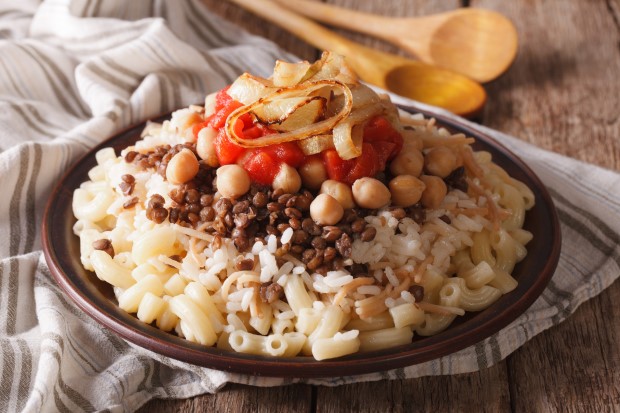
“ Winter is coming.”
This favorite “Game of Thrones” phrase can conjure up images of frozen castles, white walkers and Jon Snow in his fur cape but it does not usually bring to mind an abundance of fresh produce, does it? Well, think again.
I am a big believer in eating seasonal vegetables and fruits and preparing foods according to the current season. In a world where you can go into a supermarket and buy any produce all year round from anywhere in the world and step into fast food chains and restaurants that have the same menu any time of the year we lose our connection to the cyclical and seasonal needs of our bodies.
Eating seasonal produce is good for your health.
~ Seasonal foods are loaded with nutrients: vitamins, minerals, antioxidants and phytochemicals that are partially lost when the food is imported, transported, stored, frozen and canned.
~Seasonal and local foods are also good for you energetically, they provides your body with what you need to function optimally with the weather and environment of the season. The locally grown vegetables and fruits of winter have a warming and nourishing effect.
~ Seasonal produce and preparation methods will keep your immune system strong because they work with your body and the environment, not against it.
~ Seasonal veggies and fruits are less expensive than imported produce, saving you money – ka-ching!
~ When you buy locally you will be supporting local farms and the environment. I love shopping in outdoors farmer’s markets all year round, they really reflect the abundance, colors and tastes of every single season.
~ Fresh harvested produce lasts longer and tastes so much better!!!
While it’s ok to occasionally eat any foods you like the best way to prepare food during the winter is to eat it cooked. Think soups, stews, roasted root vegetables and slow cooked meals that create warmth and nourishment. It is not the time for frozen smoothies but rather nourishing warm broths that are full of nutrients. Winter is also a good time to include more fermented vegetables like sauerkraut and kimchi that promote a healthy digestion. I also recommend to use more good quality salt and oils during the winter for additional immune boosting and digestive health.
Here is a list of seasonal produce to get you inspired to prepare winter meals.
Fruits:
Apples
Oranges
Pomelos
pears
Cranberries
Grapefruit
Lemons
Limes
Persimmons
Pomegranate
Vegetables:
Beets
Sweet potatoes
Broccoli
Celery
Winter squashes like butternut, delicate and kabocha
Carrots
Cabbage
Radicchio
Celery root
Parsnips
Turnips
Rutabaga
Endive
Fennel
Leeks
Onions
Garlic
Radishes
Potatoes
Parsnips
Shallots
Mushrooms
Chicory
Cauliflower
Brussel sprouts
Winter greens like kale, collards, mustard, broccoli rabe and escarole
And to get you started here is a recipe for the winter version of a traditional Indian healing dish Kiichari.
Kitchari is used in Ayurvedic medicine as a healing meal, excellent for the digestion, immune system, to reduce unhealthy cravings, to strengthen, energize and for overall health. It is easy to make and absolutely delicious!
1 cup mung beans, rinsed, soaked overnight and drained
1 cup brown basmati rice, rinsed, soaked overnight and drained
In a large pot, heat up a tablespoon of coconut oil Add 1 large onion, finely diced and sauté for 3-4 minutes
Add 3 cloves of garlic, minced
1 teaspoon of fresh grated turmeric (or 1/3 teaspoon dry)
1 tablespoon of fresh grated ginger
1 teaspoon of cumin
1/2 teaspoon of paprika (or chili if you want it spicy)
1 tablespoon of dry coriander leaves
Pepper to taste
Sauté the onion and spices in the oil for about a minute
Add the drained rice and beans and mix well to coat them with the oil and spices
Add 6 cups of water and bring to a boil, cover and simmer for about 40 minutes until the beans are soft
Add 2-3 cups of chopped winter vegetables (I used carrots, celery, sweet potatoes, parsnips and bok choi but use any from the above list))
Add salt to taste
Cook for another 10 minutes
Turn heat off and wait 5 minutes
Serve hot with fresh chopped cilantro.
Enjoy!



thank you Rachel for this informative post! I too love to cook and eat seasonally and can’t wait to try out the new Indian Kiichari! xo
I’m planning to make your recipe for Kiichari! Looks fabulously yummilicious, Rachel!
Another Yummy post! <3
I love winter squashes so this is a great time of the year for me!
I love this article, Rachel. It is so important to eat according to the seasons and to support our bodies’ changing needs.
Love this recipe Rachel! Thank you for all this info here. Yummyness overload here 😉
xoxo, Z~